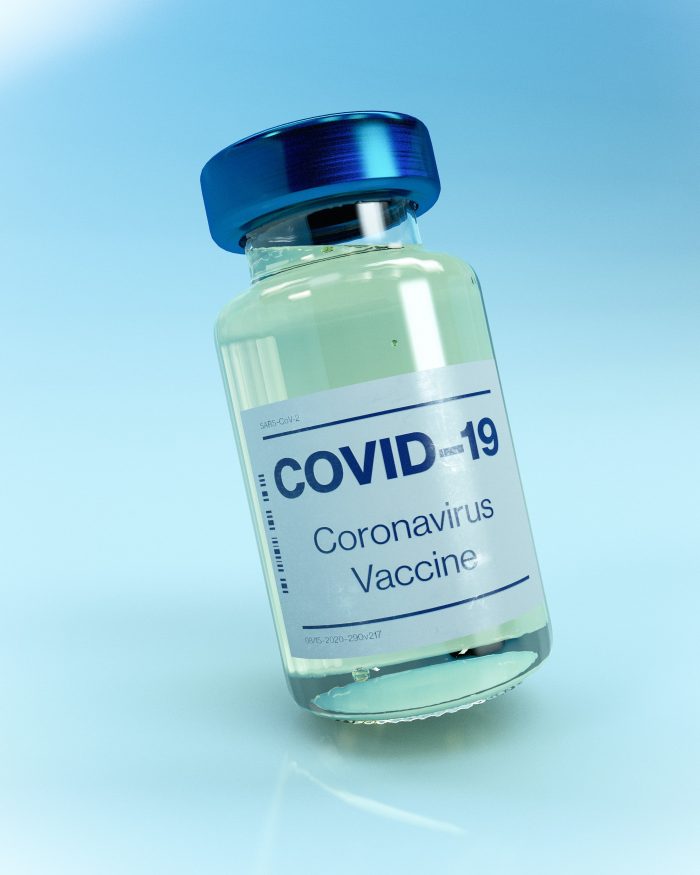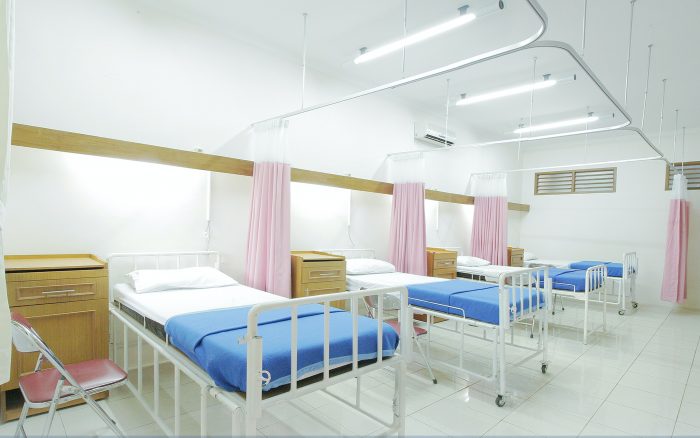COVID-19
Daily COVID-19 Infections Jump to Nearly 7,000 in Pa.

Vaccination Mandate Facing Legal Challenge
Businesses Left in Limbo on COVID-19 Mandate
Excerpts from: The Hill, November 10, 2021
Businesses are in limbo after a federal court halted the Biden administration’s vaccine-or-test mandate for private employers.
Employers are preparing to enforce the Occupational Safety and Health Administration’s (OSHA) rule, which would require businesses with 100 or more employees to mandate COVID-19 vaccinations or weekly testing by Jan. 4.
But it’s now unclear whether the requirement will survive legal challenges after the 5th U.S. Circuit Court of Appeals temporarily blocked the rule over the weekend, creating confusion among companies on how to move forward. Labor lawyers are urging businesses to continue preparing for key OSHA deadlines, given that the court’s stay, for now, is only temporary.
“I think it’s prudent for employers to proceed with planning assuming that the OSHA rule, at least in some form or fashion, will be implemented pending final resolution of the various court cases,” said Michelle Strowhiro, a lawyer at McDermott Will & Emery who advises businesses on COVID-19 employment issues.
While the OSHA rule requires businesses to mandate weekly testing for unvaccinated employees by January, the most important deadline is coming up soon. By Dec. 5, employers must collect employees’ proof of vaccination and provide paid leave for those getting the shot, while unvaccinated employees must begin wearing a mask.
The risks are high for businesses banking on the rule being overturned. Employers that don’t comply face fines of up to $136,532 for willful violations.
“Employers should be keeping one eye on the courts and one eye on taking the steps necessary to comply with the regulation by the time it comes into effect in early December so that they’re not caught flat-footed,” said Evandro Gigante, an employment attorney at Proskauer Rose LLP.
Large companies that don’t already track their employees’ vaccination status are scrambling to adopt systems to verify that information ahead of the December deadline. They’re also crafting rules that lay out religious and disability accommodations and the penalties for employees who don’t comply with the OSHA requirement.
The OSHA rule has already drawn a flurry of lawsuits from GOP-led states and conservative interest groups. Following a challenge from Texas, Louisiana, Mississippi, Utah and South Carolina, the 5th Circuit temporarily halted the rule Saturday, citing “grave statutory and constitutional issues.”
The OSHA rule has been challenged in several different circuit courts, and the cases will likely be combined into one and sent to a federal appeals court as soon as next week. Experts say the lottery will probably send the case to a less conservative court than the 5th Circuit, which previously allowed Texas’s controversial six-week abortion ban to remain in effect.
Whichever side loses the case is expected to appeal to the Supreme Court, which has a 6-3 conservative majority. Labor lawyers largely believe that the OSHA standard is constitutional, and they note that it is less strict than other federal vaccine mandates for health care workers and federal contractors. However, it’s still unclear whether the rule would survive the high court.
In the meantime, the Biden administration is urging large employers to move forward with workplace vaccine requirements as it fights to protect its rule in court.
Private vaccine mandates have steadily grown more popular throughout the pandemic. Several companies, including United Airlines and Tyson Foods, have already enacted their own vaccine requirements that are far stricter than the minimum OSHA standard.
An October survey from consulting firm Mercer found that 34 percent of employers — made up mostly by businesses with 100 or more employees — currently have some form of vaccine mandate in place.
CMS: COVID-19 Vaccination Requirements For Health Care Providers and Suppliers
The Center for Medicare & Medicaid Services (CMS) has released a one-page overview titled “COVID-19 Vaccination Requirement for Health Care Providers and Suppliers.” The one-pager gives an overview of the facilities and organizations that are required to participate in the vaccine mandate as well as guidance for meeting the standards and the enforcement process.
RCPA continues to engage with the Department of Human Services (DHS) and the Governor’s office on Pennsylvania specific recommendations and guidance as it relates to this mandate. We will continue to apprise members of any changes or state specific implications.
What COVID-19 Vaccine Mandates Mean For People With IDD

Federal Court Blocks Biden Administration’s Vaccination Mandate

New COVID-19 Infections Chart Uneven Path in Pa., But Hospitalizations Continue to Fall

CMS Announces November 10 COVID-19 Health Care Staff Vaccination Call
CMS Announces November 10 COVID-19 Health Care Staff Vaccination Call
Releases Links & Slides From Previous Call
The Centers for Medicare and Medicaid Services (CMS) has announced that another COVID-19 Health Care Staff Vaccination National Stakeholder call (associated with the release of the November 4 emergency regulation) will be conducted on November 10, 2021 from 3:30 pm–4:30 pm. To participate in this call, registration is required. Once you have registered, you will receive a confirmation email that contains information about joining the webinar. Members are encouraged to log in prior to the call beginning, as the call can only accommodate 10,000 participants.
The slides and video from the November 4, 2021 National Stakeholder call are available if you were unable to get into that call. CMS also released its Frequently Asked Questions (FAQs).
National Stakeholder Call on COVID-19 Vaccination of Staff — November 4
CMS just released an Interim Final Rule With Comment Period (IFC-6) requiring COVID-19 vaccination of staff within all Medicare and Medicaid-certified facilities. Please join John Blum, CMS’s Principal Deputy Administrator, and Dr. Lee Fleisher, Chief Medical Officer and Director of the Center for Clinical Standards and Quality, in a discussion of this important rule.
When: Thursday, November 4, 2021 2:00 pm–3:00 pm ET
Who should attend: Leaders and administrators of Medicare and Medicaid Certified Facilities as well as representatives of those who work in such facilities.
RSVP Here. Please RSVP by Thursday, November 4, 2021 at 12:00 pm ET. After registering, you will receive a confirmation email containing information about joining the webinar.
Questions: Please submit questions in advance, with the Subject heading “IFC-6 Stakeholder Call Question” here. On the call, we will answer as many of the questions received by noon as possible. We’ll also post a subsequent FAQ document.
Web links:
To view a list of frequently asked questions, visit here. External FAQs are also posted to CMS Current Emergencies Page under ‘Clinical & Technical Guidance for All Health Care Providers.’
Interim Final Rule with Comment Period in Federal Register: web page and PDF forms.
Emergency Regulation Issued Requiring COVID-19 Vaccination for Health Care Workers
As required by the Biden-Harris Administration, the Centers for Medicare and Medicaid Services (CMS) issued an emergency regulation that requires the COVID-19 vaccination of eligible staff at heath care facilities that participate in Medicare and Medicaid programs.
The regulation will create a consistent standard within Medicare and Medicaid while giving patients assurance of the vaccination status of those delivering care. These requirements will apply to approximately 76,000 providers and cover over 17 million health care workers across the country.
Facilities covered by this regulation must establish a policy ensuring all eligible staff have received the first dose of a two-dose COVID-19 vaccine or a one-dose COVID-19 vaccine prior to providing any care, treatment, or other services by December 5, 2021. All eligible staff must have received the necessary shots to be fully vaccinated (either two doses of Pfizer or Moderna or one dose of Johnson & Johnson) by January 4, 2022.
The regulation also provides for exemptions based on recognized medical conditions or religious beliefs, observances, or practices. Facilities must develop a similar process or plan for permitting exemptions in alignment with federal law.
CMS will ensure compliance with these requirements through established survey and enforcement processes. If a provider or supplier does not meet the requirements, it will be cited by a surveyor as being non-compliant and have an opportunity to return to compliance before additional actions occur. CMS’s goal is to bring health care providers into compliance. However, the Agency will not hesitate to use its full enforcement authority to protect the health and safety of patients.
The requirements apply to: Ambulatory Surgical Centers, Hospices, Programs of All-Inclusive Care for the Elderly, Hospitals, Long Term Care facilities, Psychiatric Residential Treatment Facilities, Intermediate Care Facilities for Individuals with Intellectual Disabilities, Home Health Agencies, Comprehensive Outpatient Rehabilitation Facilities, Critical Access Hospitals, Clinics (rehabilitation agencies, and public health agencies as providers of outpatient physical therapy and speech-language pathology services), Community Mental Health Centers, Home Infusion Therapy suppliers, Rural Health Clinics/Federally Qualified Health Centers, and End-Stage Renal Disease Facilities.












